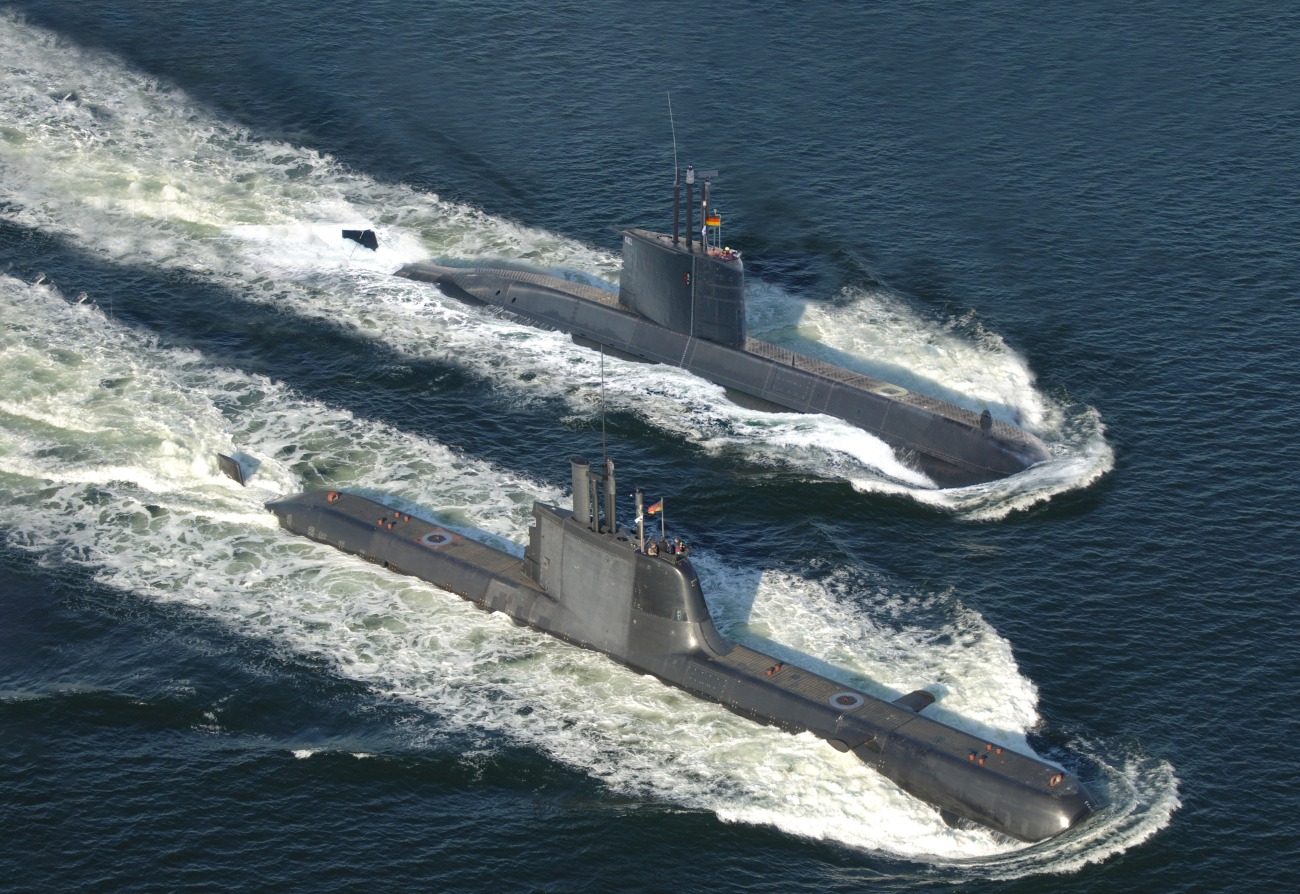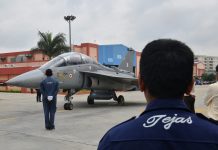It appears that German firm TkMS has won the ‘much anticipated’ Indian AIP submarine contract. The proposal of the L&T in partnership with Spanish Navantia was rejected by New Delhi as it was not compliant with Indian Navy requirements, ANI reported.
The L&T and its partner had showcased the functioning of its critical Air Independent Propulsion system in Spain to the Indian Navy team there on shore, but the Indian Navy demanded a sea-proven system in its requirements in the tender document, as per ANI.
The latest development means that the state-owned Mazagaon Dockyards Limited, along with its partner ThyssenKrupp Marine Systems (TkMS) of Germany, would be the only vendor left in the race for making the six submarines.
The deal could cost over Rs 70,000 crore (approx $8.2B), much more than the Rs 43,000 crore benchmark set by the Indian defense ministry.
Earlier, Germany’s TkMS, in partnership with India’s Mazagaon Dock Limited (MDL), was vying for India’s Project-75I, which calls for the construction of six diesel-electric submarines.
The Indian Navy’s ambitious submarine project is targeting several major capabilities, such as land-attack capabilities, anti-ship warfare (AShW), anti-submarine warfare (ASw), anti-surface warfare (ASuW), intelligence, surveillance, and reconnaissance (ISR), special operations forces (SOF), and air-independent propulsion (AIP).
The most important of these is the AIP.
TkMS, which had initially declined to bid for Project-75I due to the RFP’s “terms and conditions,” entered the bid after the German government threw its weight behind the project.
TKMS has offered a new submarine based on its Type 214 that will be customized to meet the Indian Navy’s requirements and will be equipped with the latest AIP technology, Lithium-ion battery, and stellar stealth capabilities.
Additionally, the TKMS submarine will feature an advanced sensor and combat system.

In contrast, Spanish firm Navantia had offered its latest S-80-class submarines, which were commissioned by the Spanish Navy just last year. Instead of using pure stored hydrogen, Navantia’s fuel cell-based AIP Bioethanol Stealth Technology (BEST) system uses hydrogen generated onboard from a fuel—Bioethanol, in this case.
This allows the submarine to carry more energy and stay underwater for up to three weeks while maintaining signatures that are comparable to battery-powered, pure electric navigation.
The Indian Navy conducted field evaluation tests on both offerings earlier this year. After the tests, reports indicated that TkMS had secured a slight edge over its Spanish rival as it had an operational AIP, unlike Navantia.
In a previous interaction with EurAsian Times, Christian Frühling, the TKMS Program Head for Project-75I, expressed confidence in the technology.
Frühling said, “In this, our big advantage is our unique AIP solution. The submarine design is a derivative of the well-established HDW Class 214 submarine, which is currently in service with several navies worldwide. It will be tailored to the Indian Navy’s requirements and incorporate technological advancements. To summarise our Project-75I design: it is proven, it is advanced, and it is for India.”
Currently, South Korea, Greece, Portugal, and Turkey operate the 214-class submarine. Moreover, some analysts surmised that TkMS also derived its advantage from the fact that the Indian Navy operates the Shishumar class of submarines, the Indian variant of the German Type 209 submarine.
After initial optimism surrounding the TkMS offer, reports in October 2024 suggested that neither of the two submarines could fully satisfy Indian requirements. Although operational and proven, the TkMS AIP was reportedly found to be smaller than the one needed by the Indian Navy.
Though Navantia claimed that the S-80 would be ideal for the Indian Navy, TkMS had gone full throttle to win the Project 75I contract.
Earlier, TkMS CEO Oliver Burkhard said that the German company would want to build submarines and other naval vessels in India for exports jointly with its partner — the state-owned Mazagon Dock Shipbuilders (MDL) — if the combine bags the contract for manufacturing six new diesel-electric submarines from the Indian Navy. This would, in turn, transform India into a global shipbuilding hub.
- Contact the author at sakshi.tiwari9555 (at) gmail.com
- Follow EurAsian Times on Google News




